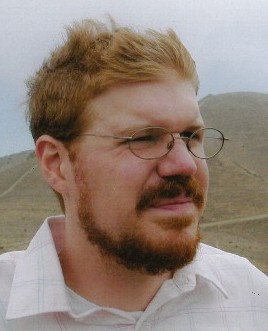Karl Tupper on the harmful and far-reaching effects of pesticides
Listen Now Download the show by right-clicking the link.
On If You Love this Planet this week, Dr. Caldicott delves into the environmental and human effects of pesticides with Karl Tupper, Staff Scientist with the Pesticide Action Network North America (PANNA), and Coordinator of their Environmental Monitoring Program. People living or working near industrial agriculture – particularly in rural areas – will be very interested in hearing this episode. Read the October 23 news article Pesticide Endosulfan Ruled “Highly Toxic” which quotes Tupper.
Near the start of the show, Tupper talks about pesticide drift, in which agricultural chemicals drift from fields where they are sprayed into neighboring communities where they can cause harmful health effects. He describes the air sampling program launched by PANNA (see photo of sampling device above). Dr. Caldicott remarks upon the enormous number of pesticides used in food production, and how toxic they are. She asks Tupper to define persistent organic pollutants (POPs). Tupper explains the consequences of the widespread use of POPs around the world, and which pesticides are banned in the U.S. but still in use in other countries. He recounts efforts to ban endosulfan. Tupper mentions the website, whatsonmyfood.org, where visitors can research the pesticide content of different foods. Learn about the work of the Organic Consumers Association on behalf of foods grown without toxic chemicals. Read a 1989 article about the nutritional superiority of organically grown foods. And see the website of Chemical Body Burden, which reports on the chemicals, including pesticides, contaminating our bodies.

Karl Tupper
Dr. Caldicott shifts the conversation to the herbicide atrazine, used widely by U.S. corn growers but banned by the European Union. Tupper talks about the adverse effects of atrazine on people and on the environment, and how atrazine has been found in most U.S. tap water. Read the August New York Times article Debating How Much Weed Killer Is Safe in Your Water Glass. And visit the NRDC page on atrazine which includes a link to their 33-page report, Poisoning the Well. Also read the Center for Biological Diversity’s August 27 press release New Research: Herbicide Atrazine Linked to Cancer, Birth Defects, Endocrine Disruption, and Endangered Species Impacts.
Tupper refers to the work of U.C. Berkeley research scientist Tyrone Hayes in studying atrazine’s castrating effects on male amphibians. Read The Story of Syngenta & Tyrone Hayes at UC Berkeley: The Price of Research and Male Frogs Losing Their Macho. Visit atrazinelovers.com, Hayes’s website. Also read the class-action complaint document filed in Holiday Shores v. Syngenta. This lawsuit was brought by a water district in Illinois against Syngenta, the Swiss company that makes atrazine. Dr. Caldicott remarks about the frightening power of chemical companies. See the November 13 Mother Jones magazine article Obama’s Pesticide-Pushing Nominee: The president taps an exec from the pesticide lobby—which slammed Michelle Obama’s organic garden—for a top agriculture post.
The episode next looks at the Stockholm Convention, a treaty to outlaw POPs including endosulfan. Tupper explains the significance of the treaty, and which countries are supporting and resisting the ban. Dr. Caldicott next asks Tupper about the current efforts by pesticide companies to discredit the writings of Rachel Carson, considered the grandmother of the movement to ban harmful chemicals. Read Rachel Carson, Mass Murderer? The creation of an anti-environmental myth and Rachel Carson’s birthday bashing: The right has revved up its claim that the environmental pioneer who criticized DDT was responsible for the spread of malaria that killed millions. The facts say otherwise.
After concluding the interview with Tupper, Dr. Caldicott reads from the toxic pollution chapter of her book If You Love This Planet, a revised and updated edition of which was published in September by WW Norton. She covers pesticides and agriculture, relevant to today’s program, and also reads about plastic and bottled water.
